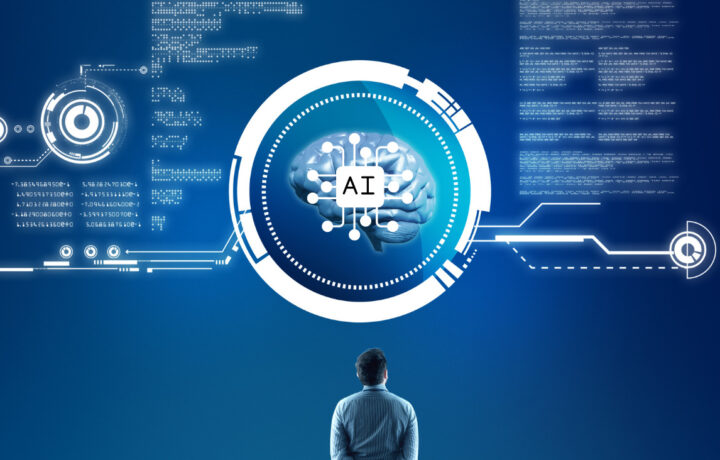On Tuesday at the White House, President Donald Trump met with the CEOs of OpeanAI, maker of ChatGPT, software giant Oracle, and Japanese multinational investment holding company SoftBank. The three companies are heading up “Stargate,” a new program to support artificial intelligence (AI) development. The three companies will build the data centers in the U.S. that will power the technology.
While it was first initiated last year, the CEOs have credited the new administration for leading the effort, which could see upwards of $500 billion invested.
“It’s really a revolution in medicine. But it’s a revolution in many other industries as well. Medicine just touches us all,” Oracle founder and CEO Larry Ellison told Fox News. “Yes, it takes a huge investment, but the result of the investment will be vaccines that prevent cancers, personalized medicine where we never again run into a problem like COVID-19 before because we get an early warning. We know when COVID starts, when there are a handful of patients, rather than having to wait until it’s become an epidemic and very difficult to control.”
Already 10 data centers have been built, but the energy to power the facilities has been seen as an issue. The U.S. Department of Energy estimated just last month that the demand for U.S. data centers has tripled over the past decade, and will likely double or triple again by 2028.
Musk Pours Cold Water on the Program
Less than a day after Trump met with the CEOs at the White House, the new initiative received strong criticism from an unlikely source – namely Elon Musk, a close ally of the president.
“They don’t actually have the money,” Musk said in a post on X, the social media platform formerly known as Twitter, adding a short while later, “SoftBank has well under $10 [billion] secured. I have that on good authority.”
OpenAI CEO Sam Altman responded to Musk, writing, “[I]genuinely respect your accomplishments and think you are the most inspiring entrepreneur of our time.”
It should be noted that Musk was a co-founder of OpenAI but has since sued the company and Altman, claiming it has moved away from its original mission.
The Stargate is Opening – What Will it Do?
The $500 billion question might be what exactly Stargate will do that isn’t already being done. According to Oracle, Stargate will aid in the “re-industrialization of the United States,” and could provide upwards of 100,000 jobs while increasing the capabilities that will protect the national security of the United States and its allies around the globe.
“Stargate will do most of the things promised, some parts will be different. There will be results that we do not expect, both in terms of what works and what won’t work,” technology industry analyst Roger Entner of Recon Analytics told ClearanceJobs.
In other words, it is AI to the rescue.
“AI writ large is about economic competitiveness. A company that can leverage its assets more effectively by means of AI can dominate competitors who don’t,” explained Dr. Jim Purtilo, associate professor of computer science at the University of Maryland.
That can include shortening the time to market, improving the quality of services, or identifying latent opportunities.
“Machine assistance can improve your bottom line,” Purtilo told ClearanceJobs. “In the same way, a nation that can leverage these technologies effectively will dominate the world market, so yes, Washington needs to up its game lest the U.S. fall further behind in a race that others are already running hard.”
Details Are Thin – Claims Are Not
To paraphrase Trump when he was on the campaign trail, Stargate is in the “concept of a plan” stage at this point. So how exactly it will accomplish the things the billionaire CEOs have promised remains unclear.
“We don’t yet know many details about the new administration’s announcement about AI infrastructure, but it sounds very promising,” acknowledged Purtilo. “The top-line messaging has been about energy and construction of data centers, which is not surprising since these relate so strongly to President Trump’s declaration of an energy emergency. No question – we will need facilities to house the data, networks to connect them, and most important of all the energy to power them. Without these, the rest is just academic.”
JObs on the HOrizon?
As for the 100,000 jobs that Oracle has said will be created, shoes could chiefly in construction and energy sectors, at least to start – while dozens of data centers will still need to be fully staffed.
“Those jobs are necessary, but there is a lot more we’re waiting to hear about too, like in the research investment,” added Purtilo, who told ClearanceJobs “We’re in the ‘Wild West’ era of machine learning. There is plenty of unplowed ground in front of us, and however much we need energy exploration, we need algorithmic exploration more. Without investment into manufacturing the scientists to gain ground in AI, they will continue to fall behind in the global race, which is to say, we need to see the administration’s intentions to link this initiative with reform of education and research policy.”
This also be seen as more than just tech training, in part because advances in this technology are moving faster than educational programs can be set up.
“By the time you define a curriculum for today’s specific technologies, the world will have moved on. The pace is that fast,” warned Purtilo. “Higher education needs better practices for preparing thought leaders who can navigate effectively no matter how the technology evolves, and across a broad spectrum of tech as well. We can’t abandon lessons from software engineering in a rush to create new AI since there are still plenty of other spectacular ways our applications can fail for not paying attention to quality development practices. It is the renaissance technologists who will lead.”




